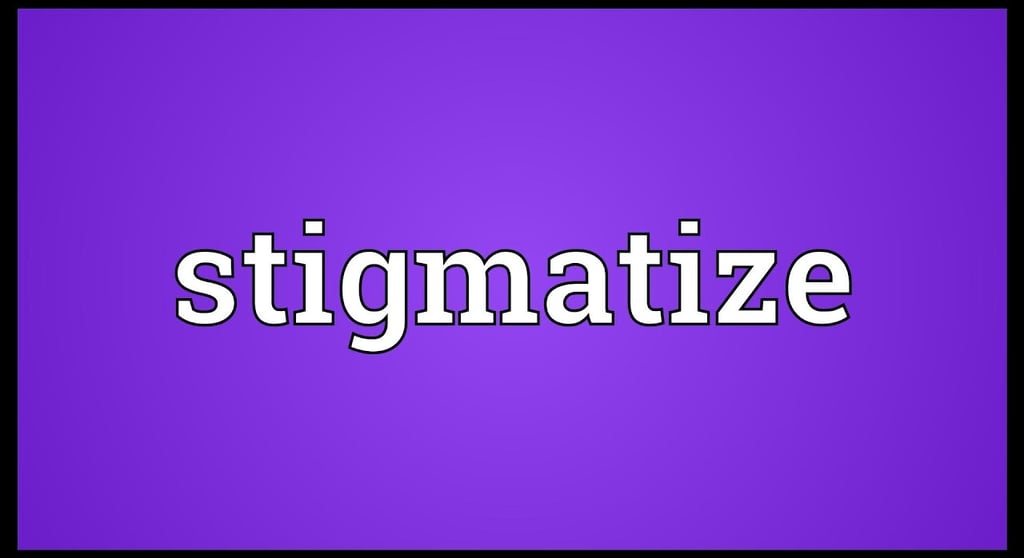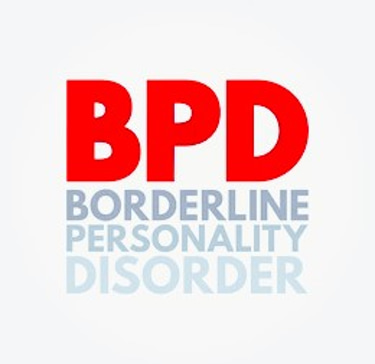Understanding the Stigma of BPD
G Pacana
7/2/20253 min read


“ No matter how open we as a society are about formerly private matters, the stigma around our emotional struggles remains formidable. We will talk about almost anyone about our physical health, even our sex lives, but bring depression, anxiety or grief , and the expression on the other person would probably be "get me out of this conversation"
― Lori Gottlieb
The stigma associated with borderline personality disorder has far-reaching consequences for individuals living with the disorder. The negative stereotypes and misconceptions surrounding BPD often lead to social isolation, discrimination, and inadequate access to healthcare services. In addition, stigmatizing attitudes hinder individuals from seeking help and delay their diagnosis, aggravating the severity of their symptoms.
In addition, BPD stigma can impact the mental health of individuals with the disorder, contributing to feelings of shame, self-blame, and low self-esteem. The resulting internalized stigma can further perpetuate a cycle of self-destructive behaviors and hinder the recovery process. It is crucial to understand the detrimental effects of BPD stigma and work towards creating a more supportive and compassionate society.
People with BPD are often thought to be weak-willed, unstable or dangerous. Others may believe a person with BPD is self-indulgent or too immature to make their own choices and decisions. The belief that BPD is untreatable persists among many people, but this is no longer true.
One of the most damaging effects of the stigma surrounding BPD is the invalidation of the experiences and emotions of those diagnosed. Society tends to view individuals with BPD as attention-seeking, manipulative, or even dangerous. This stigma not only prevents individuals from seeking help but also perpetuates the cycle of shame and self-blame that many with BPD already struggle with.
Busting Myths About Borderline Personality Disorder
Myth #1 : BPD is Rare and Uncommon
Contrary to popular belief, BPD is not a rare condition. It affects approximately 16 million Americans and is believed to affect men and women in equal numbers. In comparison, Bi-polar disorder, which is often more understood and recognized, affects approximately 7 million. Although overshadowed by other mental health disorders, one study conducted in by the NIH in 2008 found that BPD affects 5.9% of the population.
Myth #2: People with BPD are Manipulative
This is a damaging stereotype that adds to the stigma. Individuals with BPD often struggle with regulating emotions and can appear overly emotional or intense, often being misconstrued as manipulation.
Myth #3: BPD is Untreatable
BPD can be challenging to treat, but it isn't 'untreatable.' A mix of therapies, like Dialectical Behavior Therapy (DBT) and Cognitive Behavior Therapy (CBT), have proven effective in managing symptoms and leading a fulfilling life.
By busting these myths, we break down the barriers preventing individuals from getting the help they need and deserve.
Research indicates that the stigma surrounding BPD is even higher than for other psychiatric conditions. The vital step to eliminating this prejudice begins with us and our willingness to learn, empathize and abandon preconceived notions.
Knowledge is the most potent tool to combat stigma. Read up about BPD, attend therapy sessions with loved ones if they are comfortable, and encourage open, destigmatizing conversations about mental health at forums.
Promoting empathy and understanding is another important key to breaking down BPD stigma. It is important to recognize that individuals with BPD are not defined by their diagnosis but are complex individuals with unique strengths and challenges. By fostering a compassionate and supportive environment, we can help reduce the shame and isolation experienced by those with BPD.
Support groups and peer networks can provide individuals with BPD with a safe space to share their experiences, receive validation, and connect with others who understand their struggles. These support networks play a vital role in promoting empathy, reducing stigma, and empowering individuals with BPD to take control of their mental health.
BPD stigma is a significant barrier to the well-being and recovery of individuals living with the disorder. By debunking myths and promoting empathy and understanding, we can challenge these stigmatizing beliefs and create more compassion around the disorder. It is essential that we continue to raise awareness, educate others, and provide support for individuals with BPD and their families. Together, we can break down the walls of stigma and foster a more inclusive and accepting environment for those battling BPD.

Copyright 2025 Psycnet, All Rights Reserved
